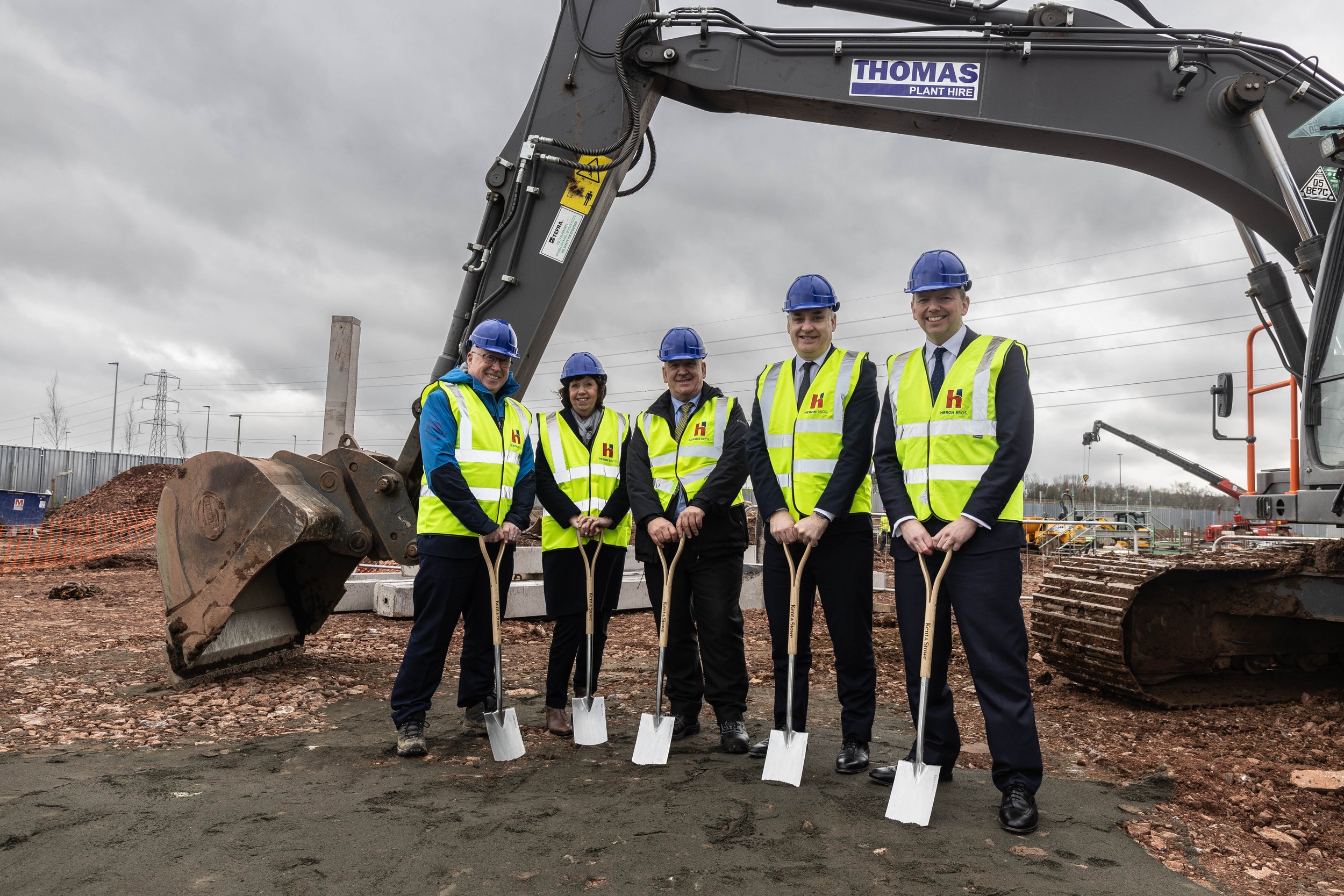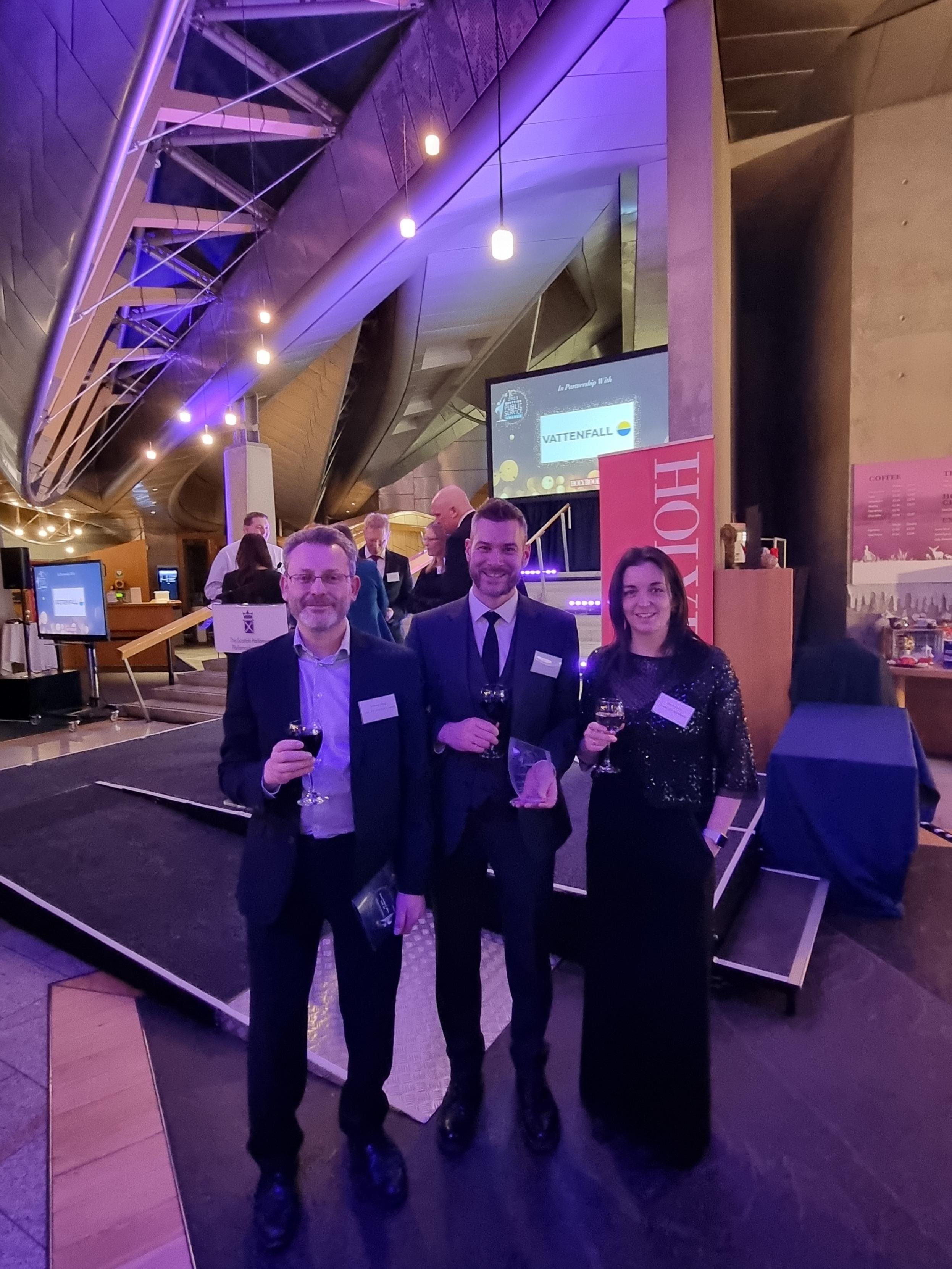The 7,200 sqm Hub, which received planning permission last September, is expected to be completed in 2025. It will comprise flexible laboratory, office and fully equipped meeting and conference spaces for rent by high growth small to medium enterprises (SMEs).
The Hub will support and grow businesses driven by innovation, knowledge exchange and technology, bringing together research, industry and academia under one roof, creating opportunities for synergies and knowledge-sharing. Tenants will be able to rent accommodation packages, for move-in ready space, that fits their size and needs. The design of the Hub will enable tenants to take up more space as and when they need to.
The venture is supported by £28.6 million from the UK Government, £1.4 million from the Scottish Government and £10 million from East Lothian Council as part of the Edinburgh and South East Scotland City Region Deal (ESES City Region Deal).
Councillor Norman Hampshire, Leader of East Lothian Council, said: “The start of construction on this project highlights our ambition to create a sought-after location for business growth and increase high value jobs for East Lothian. It aligns with our aim of making East Lothian the best place in Scotland in which to live, work and do business.
“By supporting the food and drink and other important economic sectors, including tech and life sciences, we can attract innovative businesses to one of Scotland’s fastest growing areas.
“The 52 acre Edinburgh Innovation Park adjacent to the Edinburgh Innovation Hub will transform a strategic economic development site, owned by East Lothian Council, into a nationally significant cluster of knowledge exchange, innovation and high value business growth.”
Sir Paul Grice, Principal and Vice-Chancellor of QMU said: “Along with driving economic development locally and nationally, the Hub will act as a gateway into QMU for businesses, increase opportunities at the University for industry-relevant research and knowledge exchange, promote an entrepreneurial culture, and increase the vibrancy of the area around the campus.
“The Hub is not just a new building, it will be a new business. Importantly, it will provide a much more bespoke and focused service than is currently offered by business parks, providing not only physical facilities but also the operational support SMEs need to work effectively and grow.”
UK Government Minister for Scotland, Donald Cameron said: “Construction starting on this UK Government and partners funded innovation hub is a hugely exciting milestone for the area. I can't wait to see the facility up and running as it will help boost the local and national economy through generating innovative business and employment growth. The UK Government is backing the facility with £28.6 million investment - part of our £300 million commitment to the Edinburgh and South East Scotland City Region Deal. In total we are investing more than £3 billion to level up across Scotland.”
Scottish Government Minister for Small Business, Innovation, Tourism and Trade Richard Lochhead said: “This is an important milestone in the development of the Edinburgh Innovation Hub, which is being delivered with Deal partners and £1.4 million of Scottish Government investment.
“We are investing £300 million in the Deal across a range of projects, which will be crucial in helping us deliver a fair and sustainable wellbeing economy with good quality jobs at its heart.
“Our National Innovation Strategy for Scotland sets out our vision of how, over the next ten years, Scotland will become one of the most innovative small nations in the world – projects such as this are going to be crucial in fulfilling that ambition.”
The Hub will help to initiate development of the wider Edinburgh Innovation Park on land adjacent to the QMU campus. The development was granted planning permission in principle in March 2019, as part of a wider mixed use development, including new homes and a new primary school, business & industry use and community facilities.
More information on the Edinburgh Innovation Hub is on the website.












